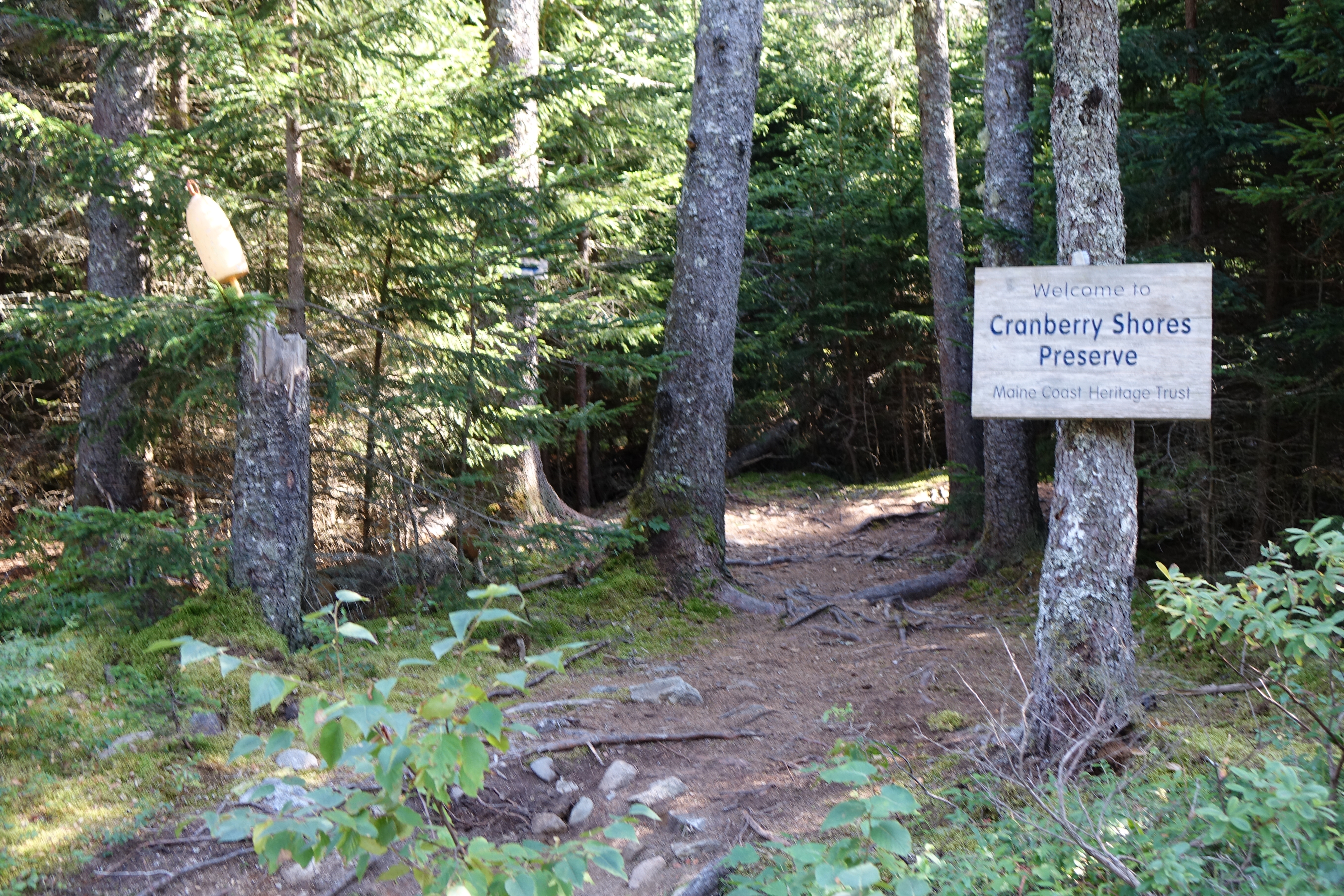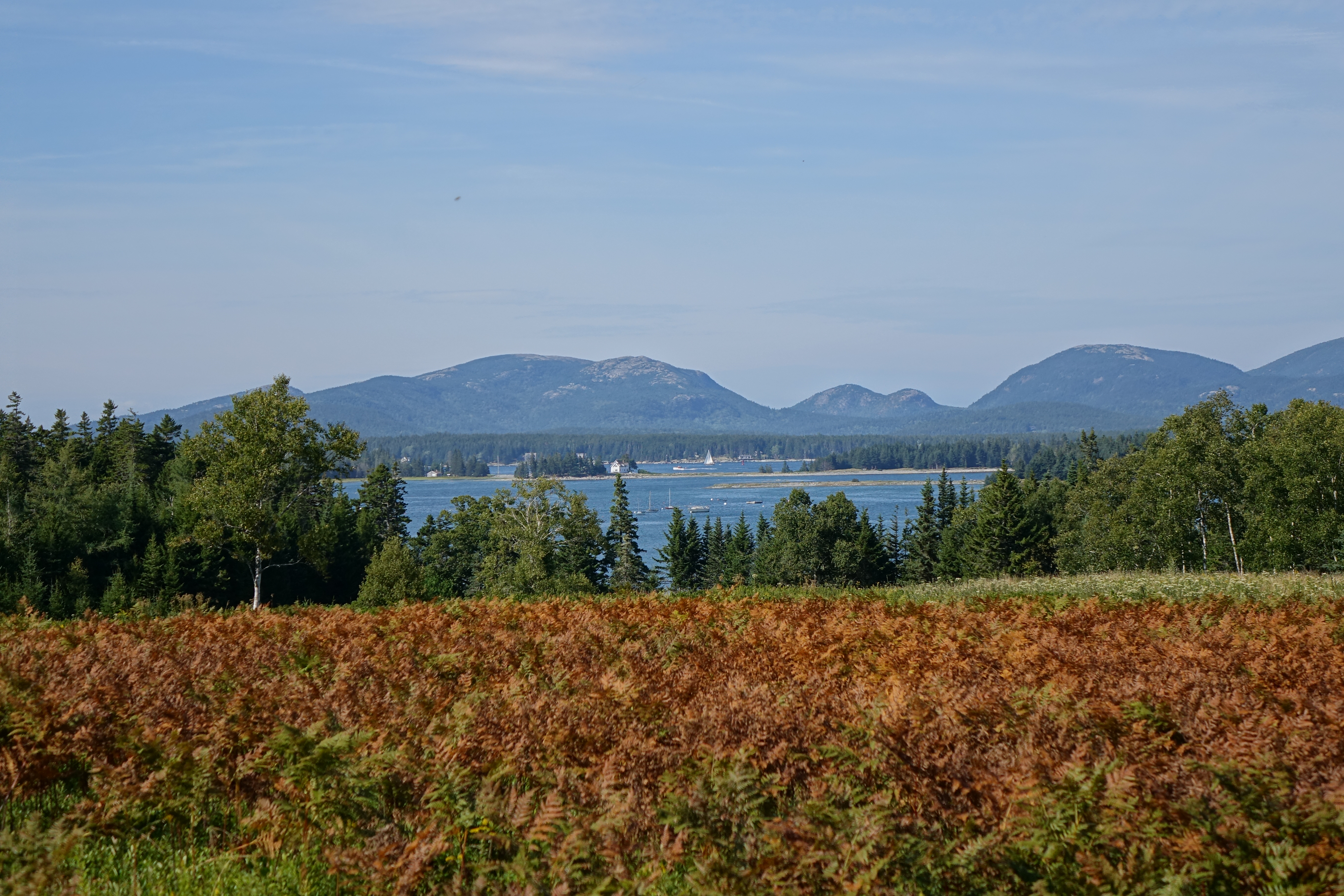Connecting state and local government leaders
As Americans crowd toward the coasts, states and municipalities are caught in passionate battles about public access, while lawsuits seem headed for the U.S. Supreme Court.
NORTHEAST HARBOR — Maine, it is said, has more coastline than any other state. Measured along the twists and turns of countless coves and inlets, the coast stretches 3,478 miles, a few more than California’s—and over 5,000 miles if one counts the shorelines of numerous coastal islands.
But Maine does not grant the public ready access to all that shoreline, unlike most of the 31 states with coastal waters, a count that includes those bordering the Great Lakes.
Therein lies a growing controversy.
Coastal access is also a big issue in other states, whether or not their laws grant public access. In California, along the beautiful Pacific beaches, and in Indiana, along the shores of Lake Michigan, wealthy private owners have tried to keep the public away from beaches abutting their property. In both these states, legal disputes about property rights seem headed for the U.S. Supreme Court.
In Maine, clammers and wormers are among those demanding better access, not to mention sunbathers and beach recreationists. So fraught is the issue that a bill granting people who dig for clams and marine worms the right to harvest in the mudflats of Acadia National Park passed the U.S. House of Representatives this past March.
And the Maine Supreme Court is about to rule on the oddball topic of whether seaweed is a plant or a variety of fish, a definition crucial under state law to determining who can harvest it. Indeed the seaweed controversy is contentious enough to have attracted detailed coverage in The Washington Post last month.
While Maine state government under Gov. Paul LePage has been less interested than it used to be in preserving land for public access, local governments are constantly trying to figure out what can be done.

And a conservation group, the Maine Coast Heritage Trust, on Aug. 1 unveiled an ambitious capital campaign, aiming to raise $125 million for what it called the largest coastal conservation effort in Maine’s history. It will finance a wide variety of projects, with an emphasis on improving public access to the Maine coast and conserving habitats threatened by climate change and development. MCHT president Tiim Glidden said that $90 million had already been pledged before the campaign was announced.
Local Struggles
Blue Hill is a hard-working harbor full of lobster boats and surrounded by commercial establishments, including several popular restaurants. But city fathers worry that the public doesn’t have enough access to its shoreline, and so they are pressing to buy a 3.5 acre lot including 900 feet of shorefront.
Residents voted 97-86 in a July 26 meeting against appropriating $458,000 of town funds to make the purchase. But two of the three selectmen want to keep the option open and to schedule a referendum on the purchase in November, according to a report in the Bangor Daily News. The paper quoted selectwoman Ellen Best as saying, “Access to the shore has become more and more limited. It’s a problem increasingly spoken about among towns on the coast of Maine. The need for coast access is something that is very important to me for the future of this town.”
In Cape Elizabeth, just south of Portland, controversy has also been teeming for years about access to a strip of land that runs in front of a neighborhood of expensive homes. The shorefront owners vigorously resisted a proposal to create a walking path in front of their properties along a “paper street” outlined in decades-old city plans but never developed. Shouting matches and lawsuits have marked the dispute, and 600 people last year signed a petition to preserve access to the waterfront. Just this month, the shoreside homeowners’ lawsuit seemed to be settled when they agreed to pay the town $500,000 to purchase land elsewhere in exchange for dropping its claim to the walking path.
Kennebunkport, once frequently in the national news as the summer home of the Bush presidents and their families, has also had a long-running dispute about public access to its three-mile sandy Goose Rocks Beach. There, and in Wells and Old Orchard, whose beaches are important to tourist and recreational economies, there is “a growing sense of exclusivity,” said Orlando E. Delogu, a retired University of Maine Law School professor who has recently published a book titled “Maine’s Beaches are Public Property.”
Kennebunkport has not managed to overcome a Colonial Ordinance of 1647 that grants upland property owners title to land down to the low-tide mark, but it has pressed its case for public access with enough determination to persuade a majority of property owners along Goose Rocks Beach to allow public access.
The 1647 ordinance was adopted by the colony of Massachusetts, which at the time included what is now Maine, and it has remained stubbornly valid in the eyes of the courts ever since. The intertidal zone—the area between tide and low tide—has thus been private except for three activities the colonial government deemed essential: fishing, fowling and navigation.
Numerous court cases have sought to establish public rights to the Maine shores. A detailed and lucid primer on these efforts and their results was published, in its third edition two years ago, by the Maine Sea Grant College Program of the state Department of Agriculture, Conservation and Forestry and the Wells National Estuarine Research Reserve.
It harks back to a key case in 1989 about access to Moody Beach, a mile-long stretch of sand in the town of Wells. About 100 homes adjoin the beach, and some of their owners sued to prevent walking, swimming, sunbathing or using the beach in front of their homes. The Superior Court ruled against the homeowners, and they appealed to Maine’s Supreme Judicial Court. At the same time, the Maine legislature enacted a law giving the public the “right to use intertidal land for recreation.” Eventually, the state’s high court invalidated the law, ruling that the public has no rights to intertidal zones except for fishing, fowling and navigation. Delogu’s 267-page book makes the case that the court’s ruling was in error.
The surge of litigation on coastal access stems, of course, from the growth of population, wealth and tourism along the shores of the Pine Tree State. Paul Dest, who has worked on shoreside access for decades and is now director of the Wells National Estuarine Research Reserve, harks wistfully back to earlier times. “Back 30 or 40 years ago, you could just go to these places,” he said in an interview with Route Fifty. “The coast was less developed. No one was going to kick you off, and there was no home there. Sure, you could camp on the beach. And families along the coast didn’t mind clamming. So I think there is less access, even though there is more publicly owned land”—the result of state and local purchases over the years.
Issues of Commerce
Beaches in southern Maine, and beautiful Sand Beach in Acadia National Park, are of obvious importance to the state’s tourism appeal. But they comprise just a tiny fraction of the Maine’s rocky coastline.
So growing exclusivity along the coastline is of concern also to many people who depend on access to the water for their livelihoods, and to local officials who represent them. That concern is on display in Blue Hill and elsewhere along the coast. Increasingly, leaders of the 130 towns that line the coast are looking for outside help to preserve access for local workers, said Maine Coast Heritage Trust president Tim Glidden in a recent interview. The trust is working closely with these officials, stepping in when needed to buy up small parcels of land that are traditional access points but have come up for sale by their private owners. Some of the towns have no publicly owned access points, Glidden said, even for traditional purposes like boat launching.
The Trust, started by the Rockefeller family nearly 50 years ago, has been gradually increasing its work on public access. Its original focus was on pure conservation. That struck some as elitist—”so I don’t have to look at some tacky house on a pristine island when I sail by on my boat,” as one trust board member put it. There’s still a lot of conservation work that doesn’t involve public access, including many easements given by private donors, but Glidden confirmed that access is now one of three key goals his organization is pursuing.
Public ownership of the coastline amounts to only 6.5 percent of the total, according to the Trust’s estimate. The Citizen’s Guide to Ocean and Coastal Law put it at 12 percent, but that’s an estimate that would include easements that don’t necessarily offer public access.
Diminishing access is one of three “big threats” foreseen by the Trust, said Glidden.
Another is climate change that is threatening coastal ecologies including the resiliency of marshes. The Trust is working to counter that threat by, for example, buying upland property that will allow the marshes to migrate to higher points as the sea rises.
The third threat is also linked to climate change: As East Coast cities like Washington and New York become increasingly hot and humid, Maine could see an influx of people seeking relief over the next 10 to 30 years, Glidden believes. People want to be close to the coast, he observes, and the Trust wants to be vigilant about land use decisions that would threaten it.
In the complex battles about seashore access, the work of clammers and wormers are front and center. On Mount Desert Island, their livelihood was threatened for a time by National Park Service officials who didn’t want to give them access to mudflats in the park. The issue was hot enough to catch the attention of Maine’s small congressional delegation, and in March a bill passed the House of Representatives that would require the Park Service “to allow for the traditional harvesting of the marine organisms in or near the park according to the laws of the State of Maine.” But the bill has not advanced in the Senate.

Seaweed harvesters, especially those who use boats to harvest rockweed that grows in the intertidal zone, are also making news. With seaweed an increasingly viable industry, harvesters “feel beleaguered by 30,000 upland owners who are saying, ‘Get the hell off my property,” said Delogu in an interview.
Maine’s Supreme Court is now pondering the tricky question of whether rockweed is a plant, like a tree, that can be claimed as private property by the upland owner or is more like a clam or worm available for harvesting from the sea in boats that don’t need to trespass across private lands to reach their catch. The dispute captured the attention not only of The Washington Post but also that of journalist Ben Golfarb, who wrote a deeply researched and entertaining piece on the controversy in the May issue of Hakai Magazine. HIs article is titled “A Fish Called Rockweed: In Maine, a strange legal debate is raging over rights to the state’s most important seaweed.”
Glidden’s organization sides with the plant argument, and has filed a brief with the Court arguing that unchecked harvesting of rockweed threatens breeding grounds for various marine species. A judicial ruling is expected any day.
Politics and Trends
Coastal access is provoking passionate fights across the country.
Delogu is excited by the Indiana Supreme Court’s February ruling that land along Lake Michigan’s shoreline belongs to the public, which rejected upland owners’ claims that they have the right to limit access to beaches abutting their properties. Delogu sees it as part of a national trend toward greater public rights. But the case may raise constitutional issues about the power of states to appropriate private property. U.S. Supreme Court Justice Elena Kagan in early August approved the upland owners’ request for an extension to petition for review until Oct. 5.
And a California case raising similar issues may also soon reach the Supreme Court. It involves a determined effort by technology billionaire Vinod Kohsla to ban surfers and other beachgoers from beaches in front of property he owns. He bought an entire beach coast village not far south of San Francisco to help prove his point. Kohsla’s effort could upend California’s Coastal Law and its Coastal Commission, according to a long piece in the Sept. 2 edition of The New York Times. In February, he petitioned the Court to rule on his case, reported the Times, “citing the First Amendment and also the Fifth (the takings clause) and the 14th (his right to due process).”
The justices are now pondering whether to take the case.
Maine was once seen as farsighted in coastal preservation and access matters. Its Land for Maine’s Future program, enacted in 1987, has raised tens of millions of dollars for preservation efforts along the coast and also at important inland sites. The public approved the first, $35 million bond issue for the program in 1987, and has voted five times since then to replenish its funding.
But the last vote came in 2012, soon after Gov. Paul LePage assumed office, and since then, he has stymied efforts to provide more funding. For his part, LePage has been largely critical of conservation groups, saying they essentially raise local landowners' property taxes by taking land off the tax rolls when it is put into trust.
LePage is retiring at the end of this year, and advocates of the Land for Maine’s Future program hope it will fare better in the next administration. And Delogu says the political climate is bound to improve for his beach access campaign, “with a new governor, a new attorney general, and a new legislature...almost certainly more amenable to receiving the cases we would bring.”
Timothy B. Clark is Editor at Large at Government Executive’s Route Fifty.

NEXT STORY: This Florida Fire and Rescue District Changed Its Outlook on Drones




